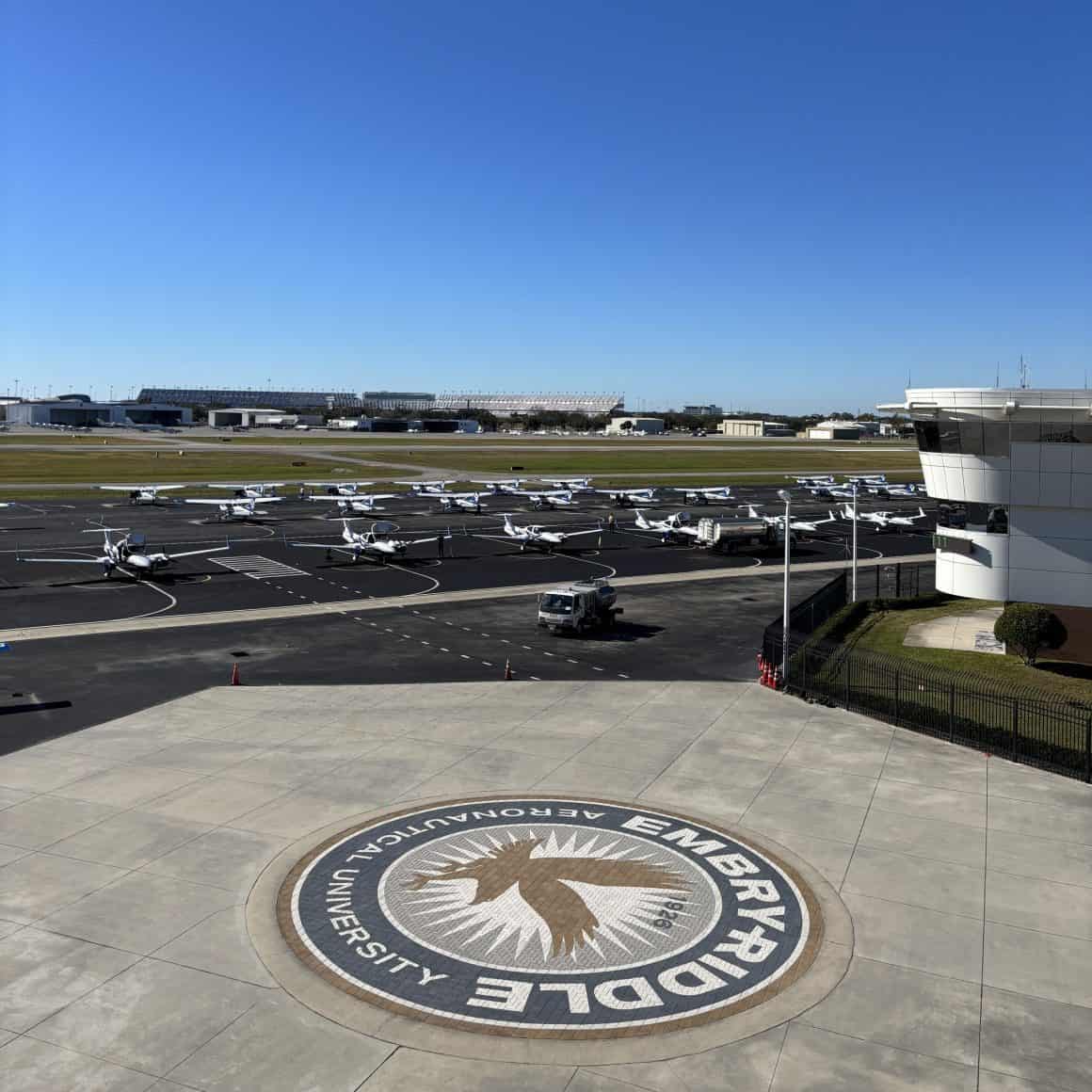Should you attend an aviation college to pursue your flying dream? It’s a quarter million dollar bet on yourself.
A college degree can be a vital door opener for many different career paths. For many careers, a college degree is a requirement. You might find it surprising though that as a pilot, a four year college degree is often not a requirement for many corporate and airline careers.
That said, thousands of students every year choose to attend an aviation-focused university. They often graduate with over $100,000 in debt and they successfully go on to fly for large corporate accounts and airlines.
So the question is, is an aviation college a smart investment? Or should you choose to go another path by choosing a flight school, the military, or as an airline cadet? The answer of course is it depends.

What Aviation Colleges Actually Offer
Large university aviation programs like Embry-Riddle, UND, Purdue, Western Michigan offer both a the traditional college courses (math, physics, engineering, and aviation management) and Part 141 flight school through the school if you sign up for it.
Most aviation programs take you from zero time to a Commercial rating. Some programs include your CFI certificates in the tuition package and offer the opportunity to teach while at school and afterwards.
The program can be attractive because students are eligible to obtain a Restricted ATP (R-ATP) qualification under §61.160, which lets you fly for airlines at 1,000 hours instead of 1,500. That’s potentially a year less time building hours, meaning that you can realistically begin your airline or corporate career about a year earlier than a traditional flight school program.
Aviation Colleges are not Cheap But Do Have Benefits
The ability to earn an R-ATP comes at a cost though. Embry-Riddle Aeronautical University (Daytona Beach) can cost upwards of $250,000 when you include a four year degree, room, board, and flight training. State universities are closing in on $200,000 for similar sized programs. While scholarships can lessen the load, they are not guaranteed and often based on need. An aviation college is a hefty cost to pay for the exact same ratings as if you went to a civilian flight school.
Compare this to the Part 61 pathway: $40,000-$55,000 from zero to Commercial/Instrument, then another $25,000-$40,000 to build to 1,500 hours as a CFI while actually earning money. Total out-of-pocket is typically less than $100,000.
What you are paying for at an aviation college is a combination of the experience and structure training. Just like a Part 141 School, you’ll be part of a structured environment with line checks, a set syllabus, and firm timelines. The difference at an aviation college is that most courses also count toward college credits. So not only will you have a checkride, but you’ll also be graded on your level of effort in the program.
A degree from an aviation college has additional benefits. Airlines and large corporate flight departments instantly recognize the quality of the instruction and will appreciate that you’ll likely be properly trained. The likelihood of ‘slipping through the system’ as an aviation college graduate is small.
One final advantage of an aviation college is that you are building a network while you are in college that will likely bear dividends for years to come.
Why an Aviation College Might Not Be For You
While the advantages are real, its not a program for everyone. During recent hiring booms, there were many pilots who were hired by airlines without a degree and without attending an aviation college. The combination of hours, job experiences, and checkrides was a strong enough boost to their resume to get hired.
Aviation colleges will tout their name but at the end of the day, it comes down to your resume. The college might get you an interview but your skills (both flying and interviewing) are what really matter.
Aviation colleges also tend to push degree programs like Aviation Management. If you love aviation, it sounds perfect to study what you love. There are risks though. What if you lose your medical or if the industry takes a drastic downturn? You’ll be glad if you pursued a more technical or broad-based degree where you can gain employment outside of the aviation industry for a season.

An Aviation College Degree Comes Down To a Personal Decision
An aviation college program definitely has its benefits. Aviation is meant to be a tight knit community and an aviation college is the perfect place to geek out with other avgeeks for four years. It can and most often does lead to a lucrative flying job shortly after the end of your college journey.
Like any decision in aviation, there are risks though. And its best to make your decision with eyes wide open to prevent starting your ‘grown up’ life with potentially crippling debt.
Bottom line: Aviation college makes sense for the right person in the right situation. That is typically someone who has financial resources or significant family support. For most people, a Part 61 program can get you to the same destination without the same level of debt.
